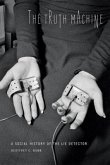Rachel P. Maines's latest work examines the rise of hobbies and leisure activities in Western culture from antiquity to the present day. As technologies are "hedonized," consumers find increasing pleasure in the hobbies' associated tools, methods, and instructional literature. Work once essential to survival and comfort--gardening, hunting, cooking, needlework, home mechanics, and brewing--have gradually evolved into hobbies and recreational activities. As a result, the technologies associated with these pursuits have become less efficient but more appealing to the new class of leisure artisans. Maines interprets the growth and economic significance of hobbies in terms of broad consumer demand for the technologies associated with them. "Hedonizing Technologies" uses bibliometric and retail census data to show the growth in world markets for hobby craft tools, books, periodicals, and materials from the late 18th century to today. The book addresses basic issues in the history of labor and industry and makes an original contribution to the discussion of how technology and people interact.
Hinweis: Dieser Artikel kann nur an eine deutsche Lieferadresse ausgeliefert werden.
Hinweis: Dieser Artikel kann nur an eine deutsche Lieferadresse ausgeliefert werden.








